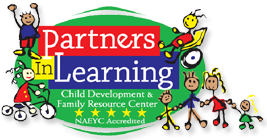Children are wired to receive and utilize sensory input from day one. This is why children will dive in hands first, exploring a new substance. The senses are their most familiar, most basic way to explore, process, and come to understand new information. This is why we must allow young children to learn through experience.
These children need to use their senses and be engaged in meaningful experiences. Partners In Learning provides daily sensory experiences in all of our classrooms. We even have a dedicated section on our Pintrest page. Follow us at http://pinterest.com/pilcdc/ to see the most current sensory ideas!

I LOVE PINTEREST!
Norma Honeycutt,
Executive Director





























